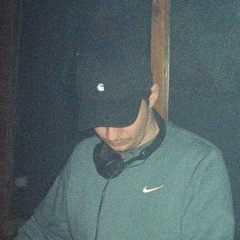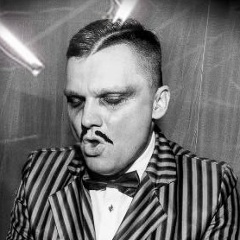Моя подружка учит португальский язык. В воскресенье вечером, за полчаса до заката мы встретились на Патриарших Прудах. Дул теплый ветер, у меня были очки с желтыми стеклами, у нее - с розовыми, и мы рассматривали небо, то и дело меняясь очками.
- В португальском языке есть потрясающее слово: "солдада", - вдруг сказала она. (Я не знаю, как пишется это слово по-португальски, поэтому ограничиваюсь воспроизведением русской транскрипции; ударение, кстати, на предпоследнем слоге.)
Перевод отнял у нас примерно четверть часа, обсуждение - остаток вечера. Чтобы объяснить значение слова "солдада", надо вспомнить так называемую "эпоху великих открытий", многие из которых были сделаны именно португальскими мореходами.
Можно было бы сказать, что состояние, которое испытывает человек, вот уже три месяца пребывающий на колеблющейся палубе корабля, когда родной берег остался так далеко позади, что вернуться туда уже невозможно (для этого попросту не хватит запасов воды и продовольствия); а в существование какого-то иного берега уже невозможно поверить (потому что пропал веселый энтузиазм, охватывающий странника в самом начале пути) - и есть "солдада". Но нет, это еще не все.
Устав болтаться между прошлым и полной неизвестностью (вместо привычного "между прошлым и будущим"), путешественник начинает испытывать ненависть к своим спутникам - без причины и даже без повода. Но он терпит, стиснув зубы, и не затевает свару, потому что знает: корабль сейчас подобен пороховой бочке, и никто не пожелает стать безумцем, высекающим искры. И еще он знает, что стоит ногам оказаться на твердой земле, и все пройдет: ненавистные чужаки снова покажутся ему добрыми товарищами по странствию в пленительную неизвестность. Поэтому на корабле воцаряется напряженное, противоестественное дружелюбие, больше всего похожее на дрянную репетицию в самодеятельном театре. Можно было бы сказать, что это и есть "солдада", но это еще не все.
Родные и близкие, оставшиеся дома, постепенно начинают казаться страннику самыми совершенными, идеальными, чудесными существами. Все ссоры забываются, а незначительные мгновения тихого домашнего счастья, вроде бы, не несущие мощного эмоционального заряда, кажутся ему райским блаженством. Постепенно путешественник перестает верить, что его близкие существуют на самом деле, он понимает, что они вовсе не живые, реальные люди, а ангелы, привидевшиеся ему во время ненадежного предрассветного сна, и поэтому воспоминания столь обманчиво похожи на реальность, хотя... не так уж и похожи. Путешественник понимает, что никогда больше не сможет оказаться рядом с ними (не потому что не верит в благополучный исход путешествия, а потому, что понимает: этих людей никогда не было, он их придумал, а значит - все безнадежно!) И он вынужден смириться с этим знанием. Можно было бы сказать, что это и есть "солдада", но и это еще не все...
Дело в том, что друзья и родные путешественника, те, кто остался дома, отлично знают о чувствах, которые он испытывает. Они искренне сопереживают ему, но прекрасно понимают, что ничем не могут помочь: им остается только ждать, а все остальное в руках Провидения. И еще... еще они знают, что из путешествия к ним вернется (если вернется) совсем другой человек, и он будет не слишком похож на того, которого они проводили. Скорее, совсем не похож. Но они все равно ждут.
Все это вместе и есть "солдада". Мост между тем, кто доверился ненадежному темному морю, и теми, кто остался дома. Мост между людьми, которые расстались навсегда - чем бы не закончилось путешествие. Самая светлая и самая сокрушительная разновидность тоски.
(с) М.Фрай. Парижский сплин Шарля Бодлера.
- В португальском языке есть потрясающее слово: "солдада", - вдруг сказала она. (Я не знаю, как пишется это слово по-португальски, поэтому ограничиваюсь воспроизведением русской транскрипции; ударение, кстати, на предпоследнем слоге.)
Перевод отнял у нас примерно четверть часа, обсуждение - остаток вечера. Чтобы объяснить значение слова "солдада", надо вспомнить так называемую "эпоху великих открытий", многие из которых были сделаны именно португальскими мореходами.
Можно было бы сказать, что состояние, которое испытывает человек, вот уже три месяца пребывающий на колеблющейся палубе корабля, когда родной берег остался так далеко позади, что вернуться туда уже невозможно (для этого попросту не хватит запасов воды и продовольствия); а в существование какого-то иного берега уже невозможно поверить (потому что пропал веселый энтузиазм, охватывающий странника в самом начале пути) - и есть "солдада". Но нет, это еще не все.
Устав болтаться между прошлым и полной неизвестностью (вместо привычного "между прошлым и будущим"), путешественник начинает испытывать ненависть к своим спутникам - без причины и даже без повода. Но он терпит, стиснув зубы, и не затевает свару, потому что знает: корабль сейчас подобен пороховой бочке, и никто не пожелает стать безумцем, высекающим искры. И еще он знает, что стоит ногам оказаться на твердой земле, и все пройдет: ненавистные чужаки снова покажутся ему добрыми товарищами по странствию в пленительную неизвестность. Поэтому на корабле воцаряется напряженное, противоестественное дружелюбие, больше всего похожее на дрянную репетицию в самодеятельном театре. Можно было бы сказать, что это и есть "солдада", но это еще не все.
Родные и близкие, оставшиеся дома, постепенно начинают казаться страннику самыми совершенными, идеальными, чудесными существами. Все ссоры забываются, а незначительные мгновения тихого домашнего счастья, вроде бы, не несущие мощного эмоционального заряда, кажутся ему райским блаженством. Постепенно путешественник перестает верить, что его близкие существуют на самом деле, он понимает, что они вовсе не живые, реальные люди, а ангелы, привидевшиеся ему во время ненадежного предрассветного сна, и поэтому воспоминания столь обманчиво похожи на реальность, хотя... не так уж и похожи. Путешественник понимает, что никогда больше не сможет оказаться рядом с ними (не потому что не верит в благополучный исход путешествия, а потому, что понимает: этих людей никогда не было, он их придумал, а значит - все безнадежно!) И он вынужден смириться с этим знанием. Можно было бы сказать, что это и есть "солдада", но и это еще не все...
Дело в том, что друзья и родные путешественника, те, кто остался дома, отлично знают о чувствах, которые он испытывает. Они искренне сопереживают ему, но прекрасно понимают, что ничем не могут помочь: им остается только ждать, а все остальное в руках Провидения. И еще... еще они знают, что из путешествия к ним вернется (если вернется) совсем другой человек, и он будет не слишком похож на того, которого они проводили. Скорее, совсем не похож. Но они все равно ждут.
Все это вместе и есть "солдада". Мост между тем, кто доверился ненадежному темному морю, и теми, кто остался дома. Мост между людьми, которые расстались навсегда - чем бы не закончилось путешествие. Самая светлая и самая сокрушительная разновидность тоски.
(с) М.Фрай. Парижский сплин Шарля Бодлера.
My girlfriend is learning Portuguese. On Sunday evening, half an hour before sunset, we met at Patriarch's Ponds. A warm wind was blowing, I had glasses with yellow lenses, hers with pink ones, and we looked at the sky, now and then changing glasses.
“The Portuguese language has a terrific word: soldada,” she said suddenly. (I don't know how this word is spelled in Portuguese, so I restrict myself to reproducing the Russian transcription; the stress, by the way, is on the penultimate syllable.)
Translation took us about a quarter of an hour, discussion - the rest of the evening. To explain the meaning of the word "soldada", one must recall the so-called "era of great discoveries", many of which were made precisely by Portuguese sailors.
It could be said that the state experienced by a person who has been on the oscillating deck of a ship for three months now, when his native shore is left so far behind that it is no longer possible to return there (there is simply not enough water and food for this); and it is no longer possible to believe in the existence of some other shore (because the cheerful enthusiasm that engulfs the wanderer at the very beginning of the journey has disappeared) - this is the "soldier". But no, that's not all.
Tired of hanging out between the past and complete uncertainty (instead of the usual "between the past and the future"), the traveler begins to feel hatred for his companions - for no reason and even without a reason. But he endures, gritting his teeth, and does not start a quarrel, because he knows: the ship is now like a powder keg, and no one wants to become a madman, striking sparks. And he also knows that as soon as his feet are on solid ground, everything will pass: the hated strangers will again seem to him good companions on a journey into the captivating unknown. Therefore, a tense, unnatural friendliness reigns on the ship, most of all similar to a trashy rehearsal in an amateur theater. One could say that this is "soldada", but that's not all.
Relatives and friends who remained at home gradually begin to seem to the wanderer the most perfect, ideal, wonderful creatures. All quarrels are forgotten, and insignificant moments of quiet domestic happiness, seemingly not carrying a powerful emotional charge, seem to him to be heavenly bliss. Gradually, the traveler ceases to believe that his loved ones really exist, he realizes that they are not living, real people at all, but angels that he saw during an unreliable predawn dream, and therefore the memories are so deceptively similar to reality, although ... not so similar. The traveler understands that he will never be able to be next to them again (not because he does not believe in the successful outcome of the trip, but because he understands: these people never existed, he invented them, which means that everything is hopeless!) And he is forced to accept with this knowledge. One could say that this is "soldada", but that's not all ...
The fact is that friends and relatives of the traveler, those who stayed at home, are well aware of the feelings that he is experiencing. They sincerely empathize with him, but they perfectly understand that they cannot help in any way: they can only wait, and everything else is in the hands of Providence. And yet ... they also know that a completely different person will return to them from the trip (if they return), and he will not be too similar to the one they spent. Rather, it is not at all like But they still wait.
All this together is the "soldier". A bridge between those who trusted in the precarious dark sea and those who stayed at home. A bridge between people who parted forever - whatever the journey ends. The lightest and most devastating kind of longing.
(c) M. Fry. Charles Baudelaire's Parisian spleen.
“The Portuguese language has a terrific word: soldada,” she said suddenly. (I don't know how this word is spelled in Portuguese, so I restrict myself to reproducing the Russian transcription; the stress, by the way, is on the penultimate syllable.)
Translation took us about a quarter of an hour, discussion - the rest of the evening. To explain the meaning of the word "soldada", one must recall the so-called "era of great discoveries", many of which were made precisely by Portuguese sailors.
It could be said that the state experienced by a person who has been on the oscillating deck of a ship for three months now, when his native shore is left so far behind that it is no longer possible to return there (there is simply not enough water and food for this); and it is no longer possible to believe in the existence of some other shore (because the cheerful enthusiasm that engulfs the wanderer at the very beginning of the journey has disappeared) - this is the "soldier". But no, that's not all.
Tired of hanging out between the past and complete uncertainty (instead of the usual "between the past and the future"), the traveler begins to feel hatred for his companions - for no reason and even without a reason. But he endures, gritting his teeth, and does not start a quarrel, because he knows: the ship is now like a powder keg, and no one wants to become a madman, striking sparks. And he also knows that as soon as his feet are on solid ground, everything will pass: the hated strangers will again seem to him good companions on a journey into the captivating unknown. Therefore, a tense, unnatural friendliness reigns on the ship, most of all similar to a trashy rehearsal in an amateur theater. One could say that this is "soldada", but that's not all.
Relatives and friends who remained at home gradually begin to seem to the wanderer the most perfect, ideal, wonderful creatures. All quarrels are forgotten, and insignificant moments of quiet domestic happiness, seemingly not carrying a powerful emotional charge, seem to him to be heavenly bliss. Gradually, the traveler ceases to believe that his loved ones really exist, he realizes that they are not living, real people at all, but angels that he saw during an unreliable predawn dream, and therefore the memories are so deceptively similar to reality, although ... not so similar. The traveler understands that he will never be able to be next to them again (not because he does not believe in the successful outcome of the trip, but because he understands: these people never existed, he invented them, which means that everything is hopeless!) And he is forced to accept with this knowledge. One could say that this is "soldada", but that's not all ...
The fact is that friends and relatives of the traveler, those who stayed at home, are well aware of the feelings that he is experiencing. They sincerely empathize with him, but they perfectly understand that they cannot help in any way: they can only wait, and everything else is in the hands of Providence. And yet ... they also know that a completely different person will return to them from the trip (if they return), and he will not be too similar to the one they spent. Rather, it is not at all like But they still wait.
All this together is the "soldier". A bridge between those who trusted in the precarious dark sea and those who stayed at home. A bridge between people who parted forever - whatever the journey ends. The lightest and most devastating kind of longing.
(c) M. Fry. Charles Baudelaire's Parisian spleen.
У записи 3 лайков,
2 репостов.
2 репостов.
Эту запись оставил(а) на своей стене Петр Кодыренков
























